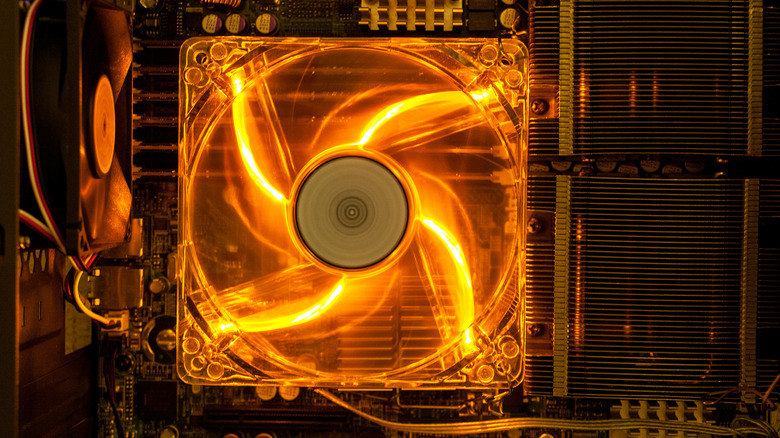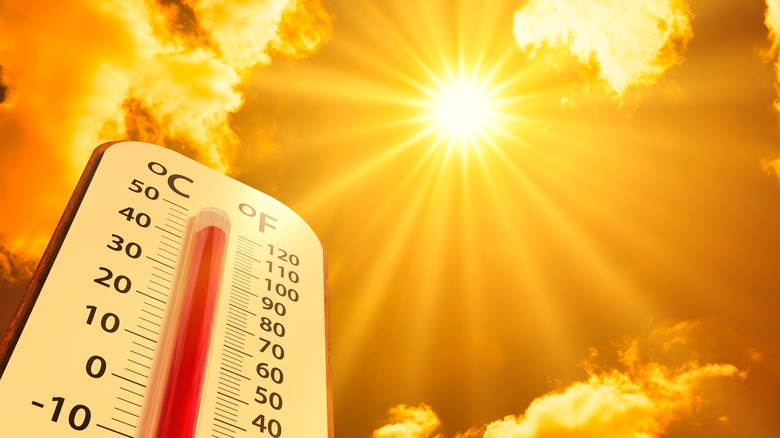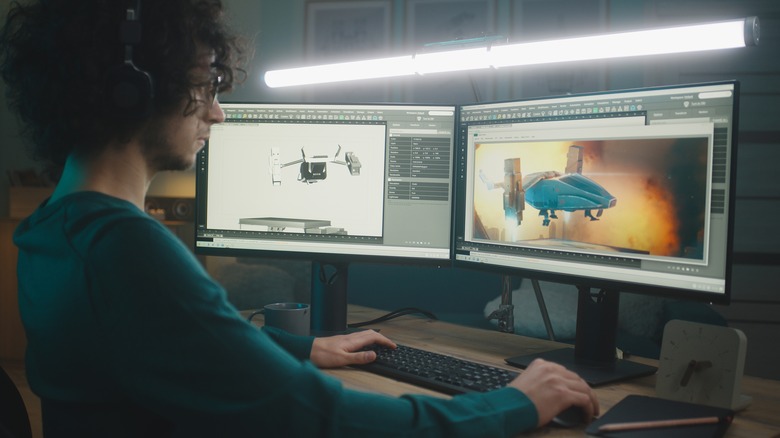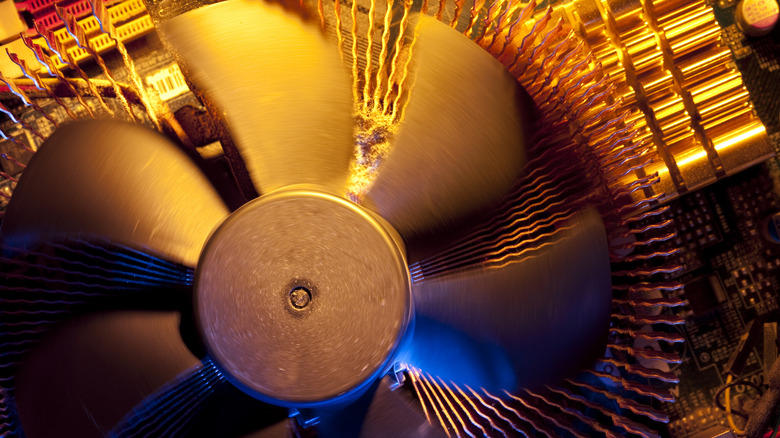Why Your CPU Is Overheating (And What You Can Do About It)
A computer, if you think about it, is pretty much just a box that we've tricked into thinking with the power of electricity, the same stuff that powers our own brains. The thing about electricity, as anyone who's ever witnessed a lightning strike can tell you, is that it is exceptionally hot. You can't just run an electrical current through a computer and not expect it to light up like a Christmas tree. It's for this reason that modern computers contain various temperature regulation tools and utilities such as fans, vents, liquid cooling, and specialized software.
Even with those tools and utilities, though, the central brain of your computer, the CPU, can become exceptionally hot, and if it gets too hot for too long, it can sustain permanent damage. That's why it's on you to identify when your CPU is overheating and do something about it as quickly as possible.
What is making your CPU hot?
Generally speaking, there are two broad categories of CPU overheating causes – internal and external.
Internal problems arise when the CPU itself is generating too much heat for the overall rig to handle. This situation can happen when you're either running a program that's too strenuous for your CPU, like a big video game or rendering software, or if you have too many programs open and running simultaneously. Your CPU only has so much processing power, so if you try to push it beyond its limits, it's going to generate a lot of excess heat.
External problems are related to the computer's real-life heat-mitigation utilities failing. Maybe your fans aren't spinning, maybe your liquid cooler's not working, maybe the vent is clogged up with dust, and so on. All of these utilities need to be working to properly vent out your rig's excess heat. When one malfunctions or fails, that's a big build-up of heat that's just floating around your CPU and other components.
How to fix internal heating problems
The first thing you should do when it seems like your CPU is running hot is to alleviate its processing burden. Open programs, for instance, can be a major draw on your CPU's resources, even if you're not actively using them. If there are any programs you're not using, close them to free up some processing power.
Additionally, if you have any large programs running like games or rendering software, try to close all other programs before using them so the CPU can dedicate its resources properly. You should also make sure that your computer is actually strong enough to run whatever programs you're using – if it doesn't meet requirements, it'll struggle to run it properly. In either case, if you open your Task Manager, you can see which programs are sucking up the most processing power and quickly close them.
It's also worth mentioning that overclocking a CPU can cause major heating issues with consistent use. Overclocking a CPU sacrifices vital utilities like heat mitigation to speed up processing power. Overclocking is okay in short bursts, but you shouldn't use your computer like that all the time.
In rare situations, your heating problems could be caused by viruses or outdated software. Make sure you have an antivirus on your PC and run periodic checks for malware, and that you install new OS updates when they come out to keep your vital software up to date.
How to fix external heating problems
If it seems like your CPU is heating up a lot even if you're not running any particularly strenuous programs, it's possible that the cause can be found in your computer case. Open up your case and take a look inside to find any potential problems.
The most likely culprit in overheating problems is dust buildup. A computer's many vents can attract a lot of dust over time, especially if it's on the floor. If the vents are clogged, then accumulated heat from the CPU and other components gets trapped. Get a couple of cans of compressed air and give the vents, along with the internal fans, a proper cleaning.
Speaking of fans, you should also make sure that the computer's cooling utilities like fans and liquid cooling are doing their job. In the former case, you can check fans by just listening for the sounds of spinning. Liquid coolers are a little harder to suss out at a glance and may necessitate a trip to your local repair shop. If you do bring in your cooler for a check-up, have them check the thermal paste as well. Thermal paste is an electroconductive putty that helps disperse heat – if it dries up or is applied improperly, your cooler and heatsink can lose a large chunk of its functionality.



